The Changing Face of Chico State
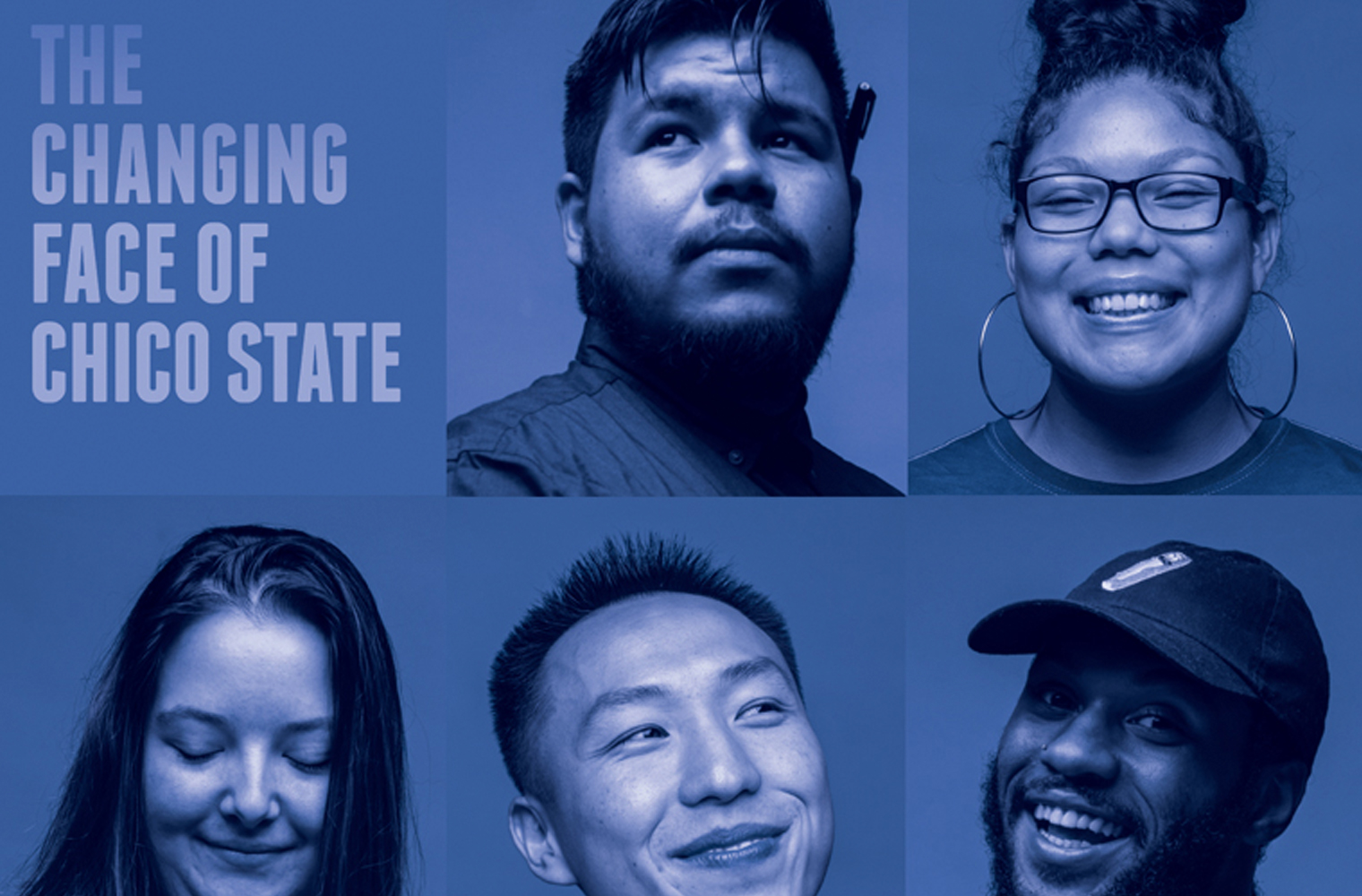
On the surface, they have little in common.
She’s from a sawmill town in Northern California. He grew up in a housing project in urban San Francisco. She’s studying chemistry while he pursues studio art. She’s white; he’s black. Yet both share a commonality that has seen a marked rise at Chico State in the last five years. Both students are first-generation enrollees—neither of their parents completed a four-year degree.
Today, the University is home to more identities and expressions than ever, spanning ethnicity, gender, area of study, age, experiences, and more. Yet, “first gen” is one of the fastest-rising identity markers. With 52 percent of students identifying as trailblazers in their families, Chico State is focused now more than ever to ensure they achieve their dreams—no matter how high they are set.
“It’s fantastic these students are getting access to higher education. As a public institution, we should look like the public,” said Teresita Curiel, director of Latinx Equity and Success. “They see this as a step for them and their family, and they can reach new heights with just a degree.”
As the University tightens its focus on equity and narrowing achievement gaps, several campus programs support that goal on a personal level. Whether it’s the Educational Opportunity Program celebrating its 50th year, relatively new programs with a focus on formerly homeless or undocumented students, or the just-launched Student Transition and Retention Center, Chico State has provided resources and mentorship to traditionally underserved populations for more than half a century, earning top rankings for social mobility and recognition as one of the nation’s most transformational colleges.
Today’s students are coming here to transform their lives, yet many struggle with feeling they don’t belong or simply don’t know where to ask for help. As the University supports their upward trajectories, we start by learning their identities, experiences, and stories.
THE AMERICAN DREAM
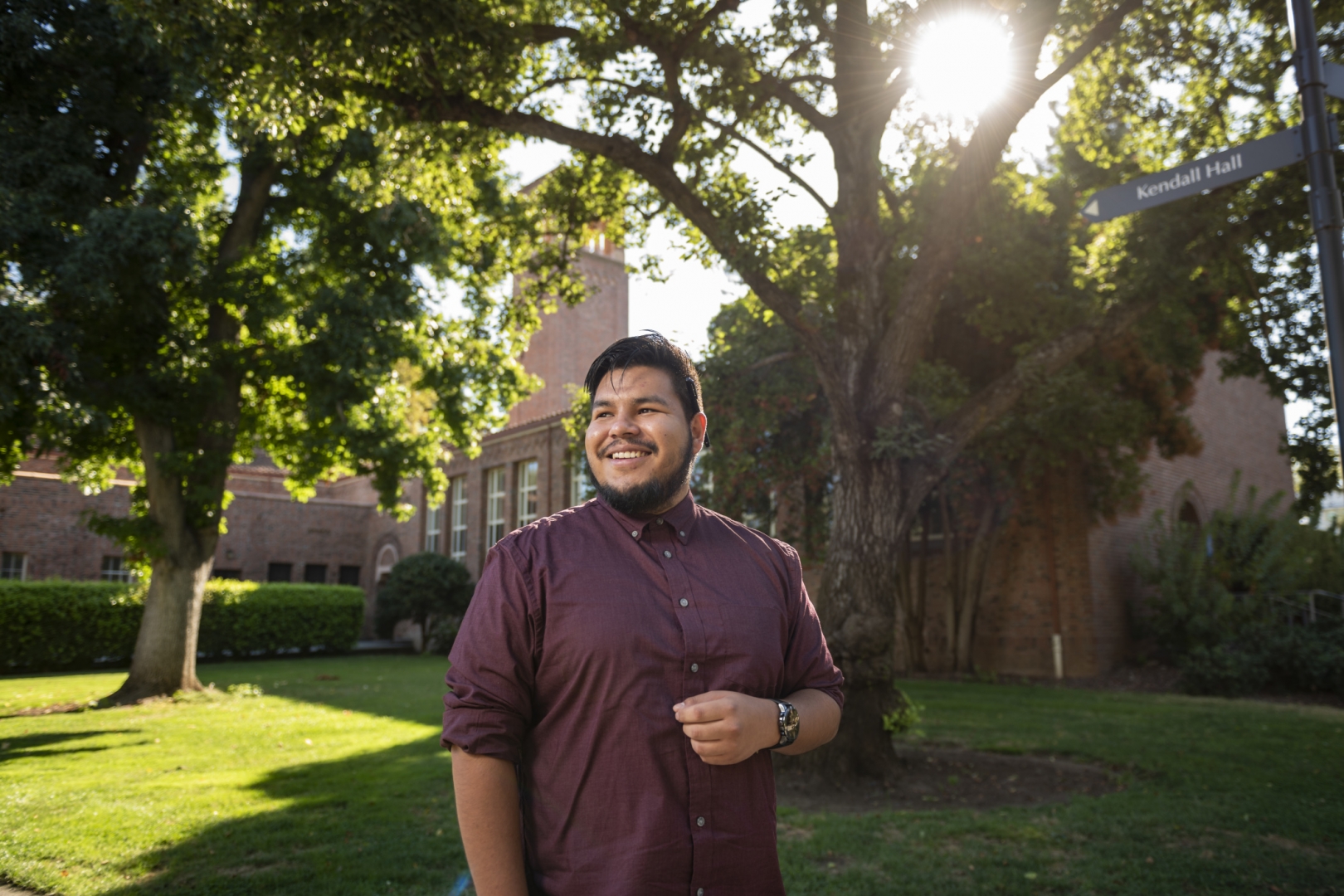
Gustavo Martir wants to be the US president. Seven years ago, he’d hesitate to raise his hand in class.
“For a lot of first-gen students, we all have so much at stake when we try to engage in our education,” he said. “We don’t want to be perceived as not worthy or that we are only there because a college wants to be more diverse. So a lot of us don’t put ourselves out there.”
Now in his second year of psychology grad school, Martir (Psychology, ’17) noticed his Mexican American ethnicity was one of many identities in which he felt isolated when he arrived at college from the Sacramento area. And his first-generation status was first evident in the residence halls, where floormates discussed their parents’ college experiences and white-collar careers in engineering or medicine. Martir’s mother cleaned hotel rooms; his father drove trucks. Neither could tell him the first thing about college. When Martir was 10, his dad brought him to till dirt and remove stubborn roots on a handyman job. The soil was so hard his ax bounced off the ground; after one afternoon, his hands were callused and bloody. He was embarrassed to later confess to his mother: “I don’t want to do the work Dad does.”
He’s never forgotten her response: “Then you have to work with your mind, not your hands.”
“I knew education was how I can change my entire family tree,” Martir said. “For a lot of us in Mexican American households, the children are the ones who will give back to the family. If our parents can’t achieve the American dream, it’s up to us.”
After graduating from high school with honors, he maintained a 3.5 GPA throughout his undergraduate career, consistently made the Dean’s List, and defended his honors thesis. He worked in the Cross-Cultural Leadership Center, tutored at the Writing Center, and joined TRIO Student Support Services as a peer coach, a job he still occupies. In those roles, he found he could join greater efforts to empower students like himself at Chico State—a group he learned had a substantially lower graduation rate.
“That was a turning point for me—first-gen, low-income, students of color can really struggle to know if they’re doing things right,” Martir said. “I realized there are people out there with stories like mine who are struggling much more than I am. I asked, ‘How can I help?’”
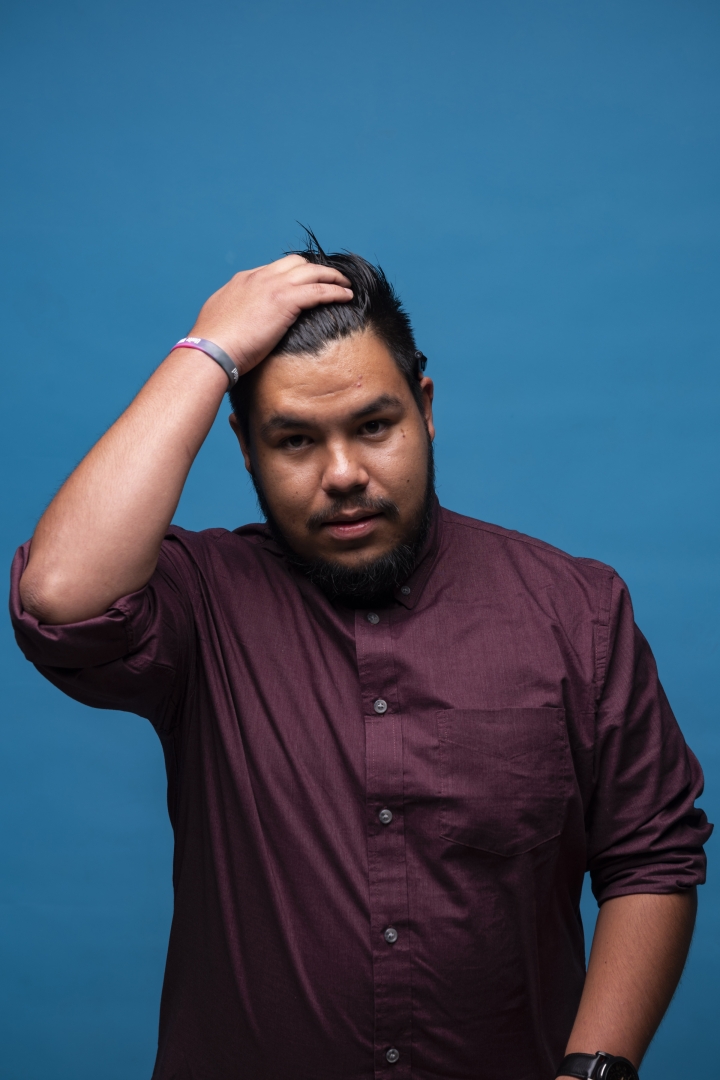
In 2016, presidential candidate Bernie Sanders visited campus, and Martir had an epiphany: He wanted to use psychology to connect with people in the political realm. A year later, he joined Audrey Denney’s (Agricultural Business, ’07; MS, Agricultural Education, ’14) congressional campaign for California’s 1st District. He knocked on more than 1,500 doors, became Denney’s Latinx outreach coordinator and University liaison, and wrote Spanish commercials. He felt he was truly using the psychology-based skills he’d learned to impact people in a significant way.
“What Gustavo is doing is an example of how brilliant he really is,” said professor emeritus Neil Schwartz, who has overseen Martir’s work in his graduate lab. “He wants to make a difference in the world to make it a better place for people—and he truly believes he can do that. I do, too.”
After grad school, Martir wants to earn his PhD at Stanford and enter the political arena. Undeterred is his desire to champion equity for underserved populations.
“We all have something special to bring to the table,” he said. “But too many people like me get stuck thinking, ‘What if this is too big for me?’ The value of empowering people is one of the greatest things I’ve learned at Chico State.”
EMBRACING CHALLENGE
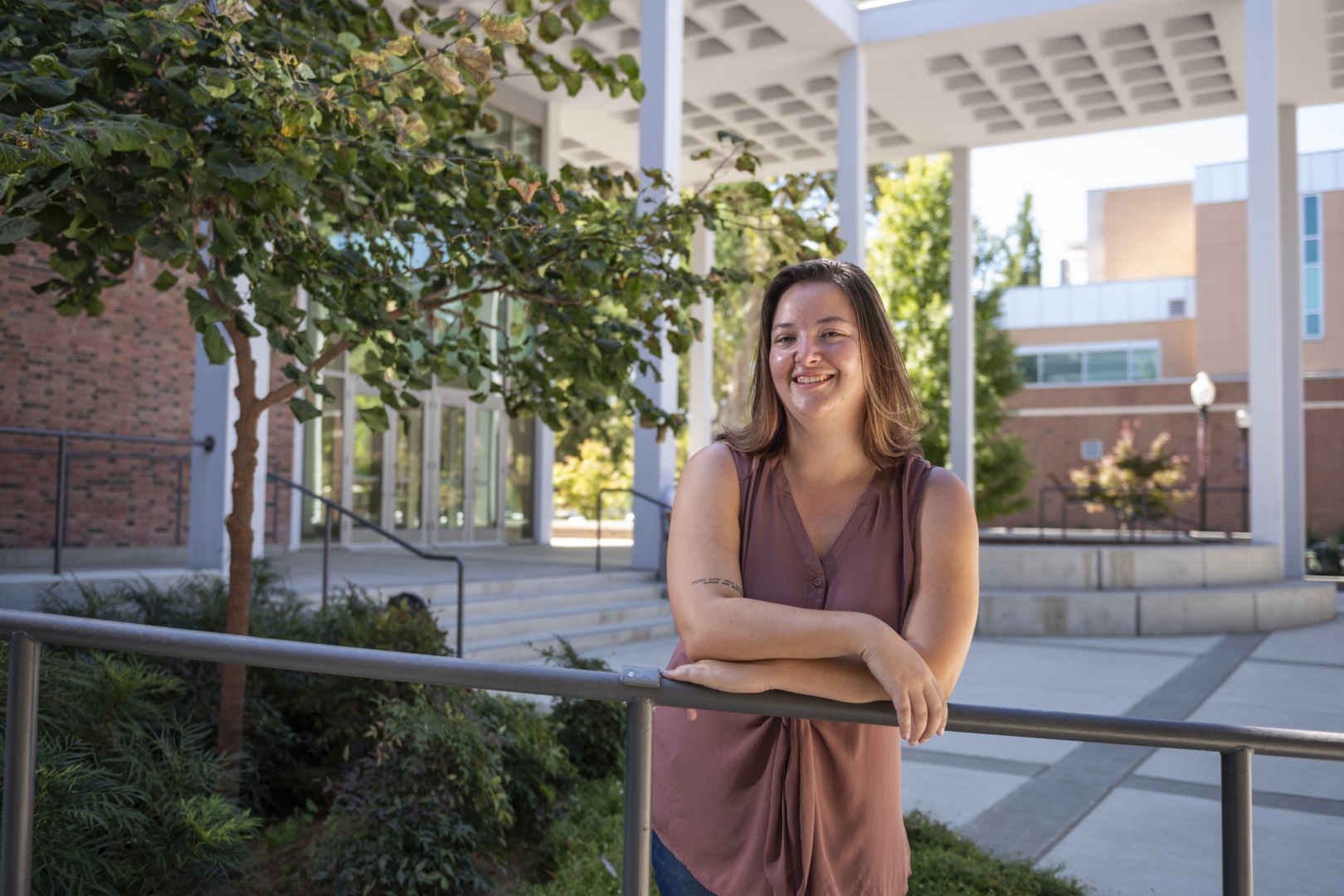
From the moment she saw her first episode of CSI: Crime Scene Investigation, Breeann Taylor-Mays knew she wanted to work in a crime lab. She was taking high school chemistry, and she loved it—“doing the science,” she has always called it. Taylor-Mays liked being in the lab, seeing projects through to completion, collaborating, constantly learning.
Now a senior chemistry major, she works in the chemistry lab supporting the work done in the University’s nationally renowned Human Identification Laboratory (HIL). After graduating in May, she will explore a job in a Las Vegas crime lab.
“Breeann has needed very little hand-holding. She can work independently in some pretty complicated processes that are really a mixture of art and skill,” said HIL director Eric Bartelink, the son of Dutch immigrants who himself is familiar with the first-gen experience. “The amount of alone time it takes to master a skill can be a very solitary effort, and she commits to it. Sometimes, students who don’t have those parental expectations can be more motivated to do well— they have something more to prove.”
Growing up with her mother, stepfather, and three sisters in Quincy—a 2,000-person sawmill town about 80 miles east of Chico—Taylor-Mays’ early commitment to her education was one nobody in her family had made before. Her mother manages the local co-op, and her stepdad is a Napa Auto Parts employee. Neither knew the first thing about getting to college, but they were unshakably supportive of her dream. The experience of applying for student loans was a new one for all of them, and their family fell within an uncomfortable gap: a married, two-income household ineligible for most grants, but also unable to fund four years of tuition and fees. Taylor-Mays works full time to fund her living expenses independently.
“My mom doesn’t understand the stress of it. She thinks I’m so smart that I’ll be fine no matter what,” she said. “But she doesn’t know how hard it can be. Work and class is a tough balance when you are full time in both.”
She balances her studies with music—she has played trumpet in the Chico State concert and pep bands—nurturing another passion she’s held since the fourth grade.
College has been her dream since childhood, and she found support resources early on. In high school, it was Upward Bound, which helped prepare her for the process of applying, declaring a major, and securing financial aid. And throughout her academic career, she has depended on TRIO—federal outreach and student services programs that bridge gaps for students from underserved backgrounds.
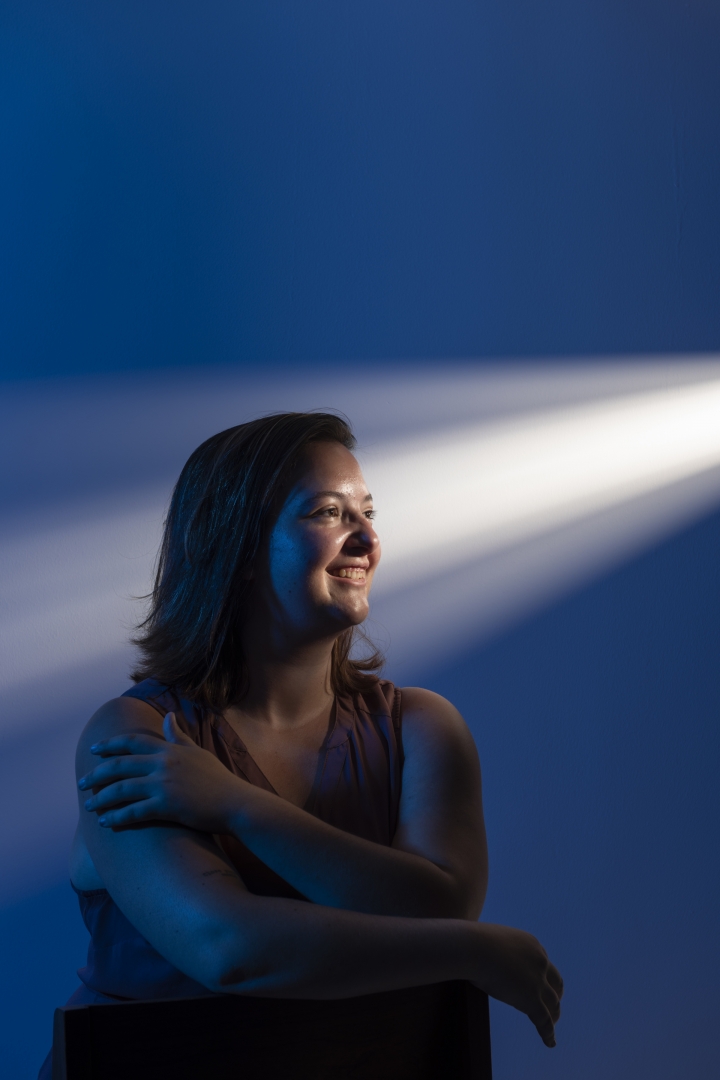
Once Taylor-Mays got to Chico State, she embraced the rigors of her chemistry coursework and remained connected to TRIO, which guided her through all the unknowns of college life: tutoring, advising, budgeting, and more. Conversations that Taylor-Mays had been missing at home were now available from first-gen students and staff who had lived the experience firsthand. She now is in a similar role. She has started to teach budgeting skills to one of her sisters, who has often struggled in living paycheck to paycheck.
The drive to help others is what appeals to her about forensics work, too. When she began her work in the HIL, Taylor-Mays analyzed bone samples from a Vietnamese burial site, trying to determine through bone matrix analysis if they might have belonged to American soldiers.
“When I started that, I knew it: This is what I want to do forever,” she said, beaming. “It’s knowing that the work that I do could help people. If I’m helping solve crimes, or helping to find answers, it’s going to make a difference for somebody else.”
HELPING HUMANS
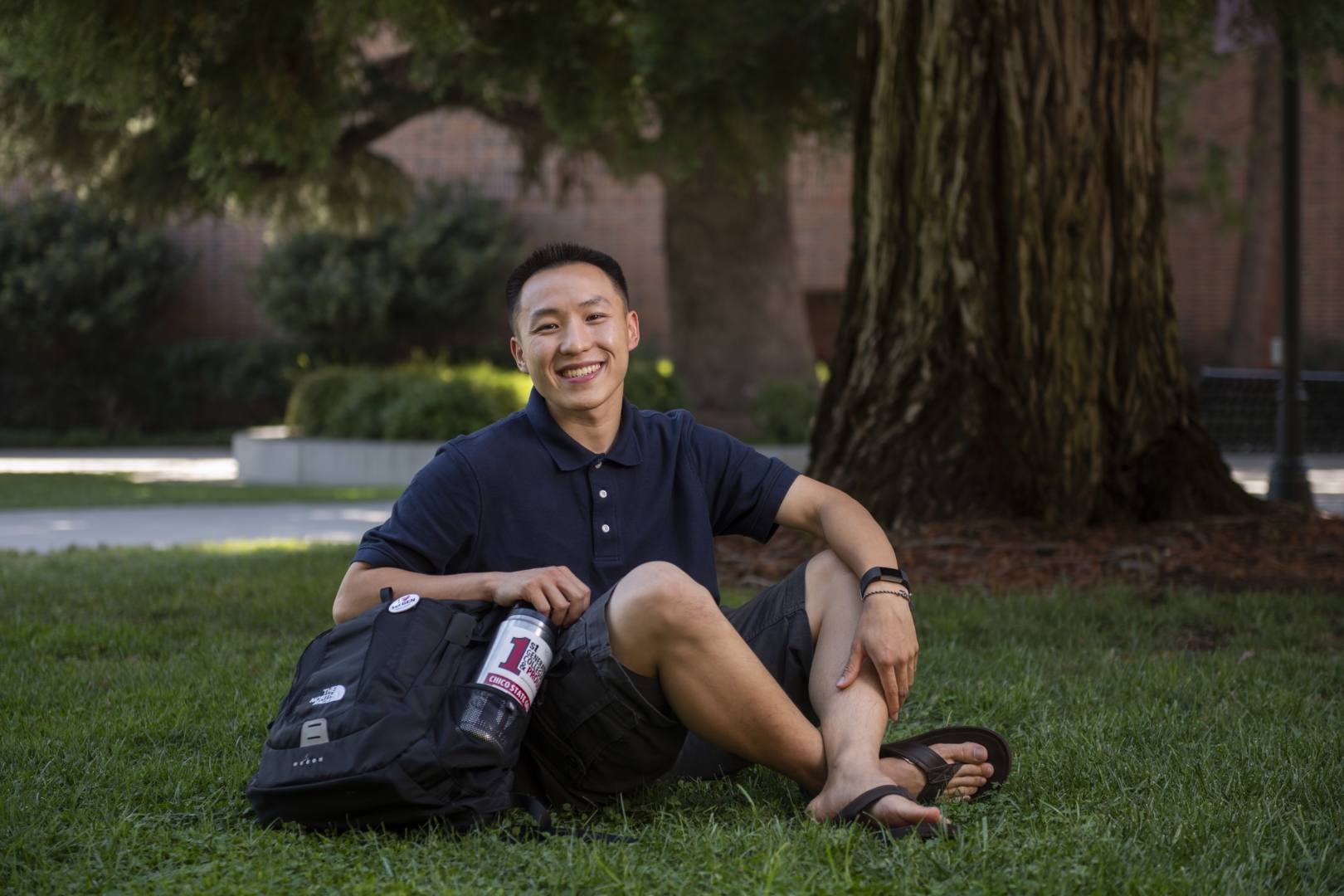
Kosue Yang (Social Work, ’19) distinctly remembers the pressure during his undergraduate years. Making a choice between a career he wanted and one his parents thought would make him successful, Yang grappled in competition for his own direction.
“I felt like a link between two worlds,” said Yang, who first enrolled in biology. “There was a big gap between my family’s experiences and the college experience. I was alone in the middle of it.”
Now studying for his master’s in social work, Yang explained that his parents’ vision for college was shaped by a worldview with limited exposure to higher education. Having immigrated to the United States in 1993 from Laotian refugee camps, Yang’s family thought a college education was a direct pathway to three typically successful American careers: doctor, lawyer, or engineer. He didn’t feel passionate about any of them.
Anticipating their confusion and the argument to come, he dreaded the day he had to tell his parents he was changing his major to social work.
“Most Hmong parents, in my experience, only cared about those careers they thought would make you rich. So that was a tough conversation—they were shocked,” he said. “They scoffed at it. ‘A person at the welfare center? Child protective services?’ It made me upset, but I understood it. We were minorities, a low-income family, and they thought this might be a chance to be more financially stable.”
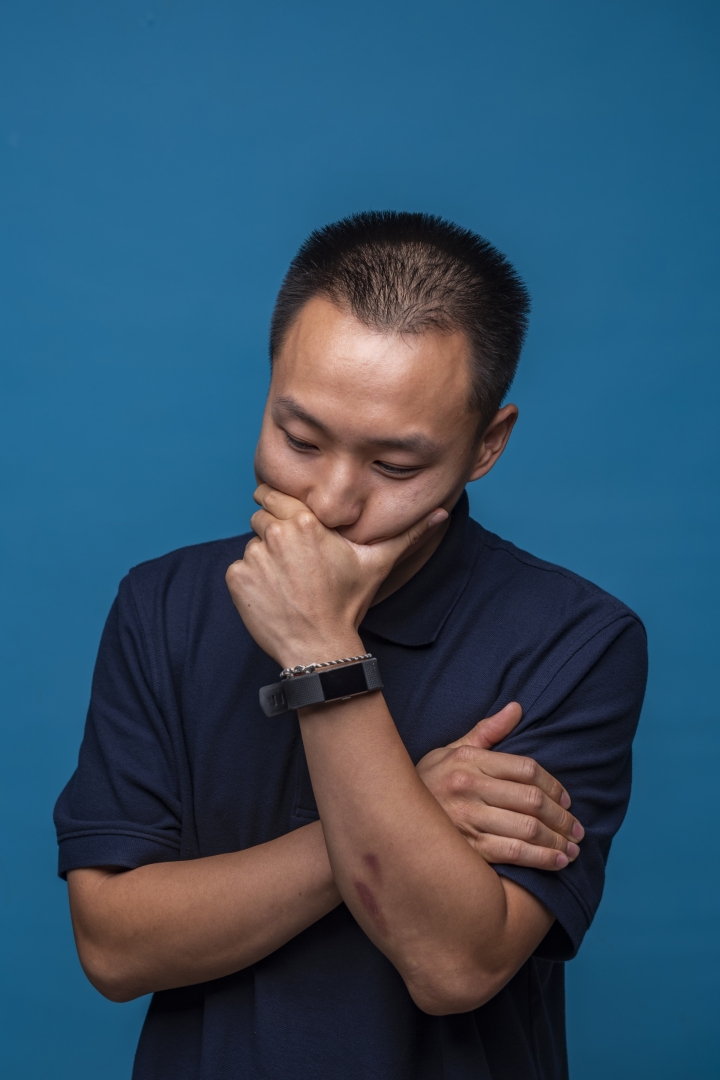
His family wasn’t his only stressor. An Oroville native, second-language English speaker, and part of a Butte County Hmong community that’s one of the largest in the West, Yang felt self-conscious about the things that set him apart from his peers. He was afraid to draw attention to himself, feeling few similarities with the many students he saw.
“I definitely felt like a minority, that maybe it would be best to just stay quiet, do my work on my own, and not bother anybody,” Yang said. “I was very aware of the environment around me. It didn’t always feel like it was meant for me.”
Since then, he joined TRIO and found University staff willing to help him find his path. He gravitated toward the relationship-building appeal of social work and let his heart choose his major. He started to connect with other first-gen students, and they confirmed what he suspected he wanted to do: help other humans. In his new major, Yang excelled, earning the TRIO Distinguished Scholar award and twice earning Dean’s List honors.
“Kosue is a community-minded person who wants to devote his life’s work to supporting the Hmong community in the North State,” said Tasha Alexander, TRIO project director and a member of the First-Gen Faculty and Staff Association. “He has done a beautiful job of honoring his commitments to his family and community.”
Yang regularly communicates to his parents how his work fulfills him, and how his future prospects—he has his sights set on working in a student-support capacity, preferably in higher education—will be able to support him financially in the long term, as well as enrich his family’s prospects. Though it was difficult for him to challenge his parents’ traditional viewpoints, he said they have begun to see the impact social work has had on him and they have gained a level of comprehension around his field they didn’t have before.
“By having a sense of flexibility and openness,” Yang said, “we’ve begun to learn from each other. It’s allowed for growth, education, awareness.”
BRINGING OTHERS ALONG
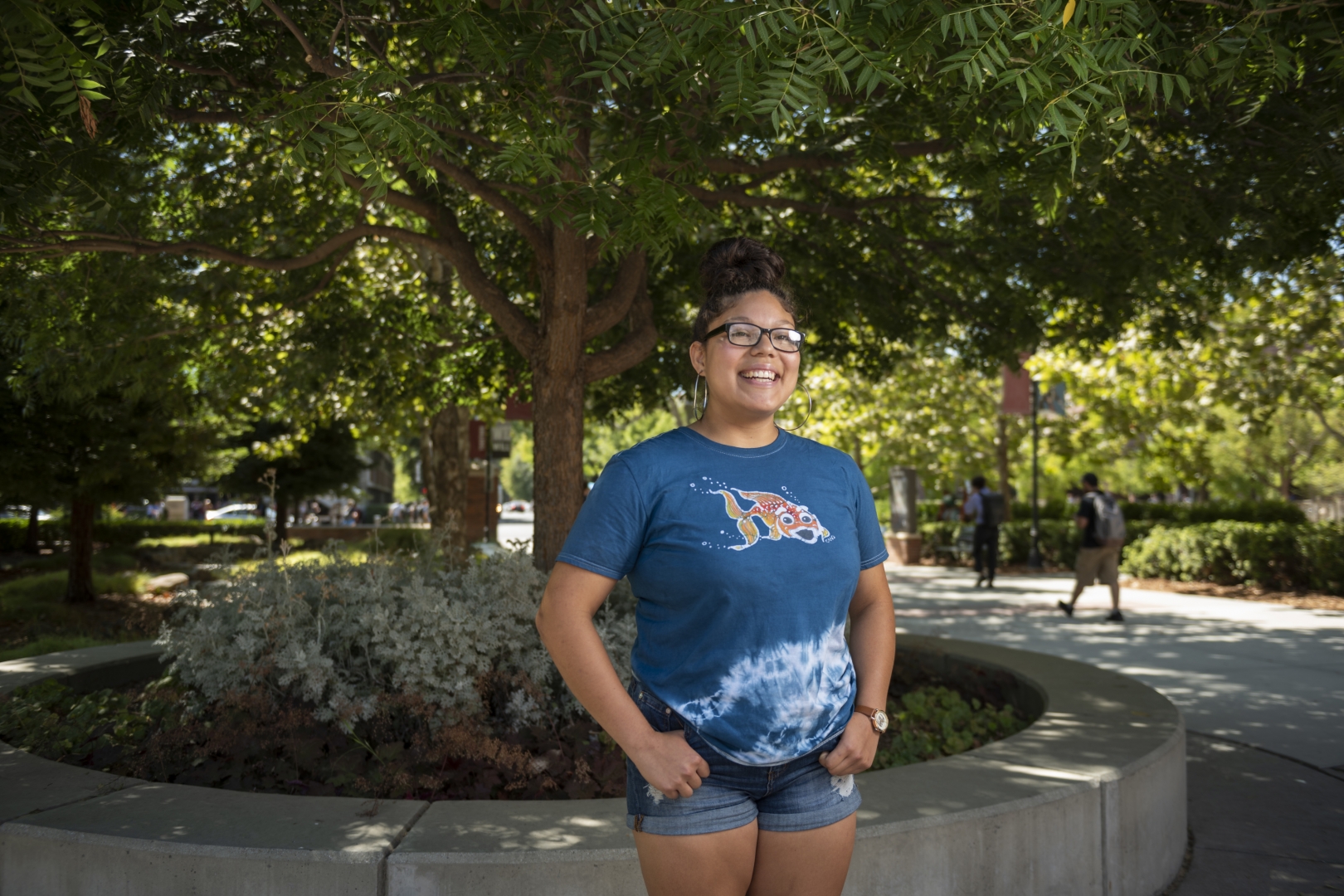
Jacklynn Rodriguez always loved the outdoors, especially wildlife, and in the fourth grade, a class field trip took her to a sanctuary to see exotic animals. When the facility’s staff brought out a giant yellow boa constrictor, she was floored—and one of the only children who volunteered to hold the massive snake.
“Any time I’m outside, I fall in love with nature again,” she said. “Everything around us, there’s some scientific process at work. When I walk around, I like to think about that. I get lost in how beautiful it is.”
Rodriguez, a junior environmental science major, took charge of her aspirations starting in middle school. She was involved with TRIO’s Educational Talent Search program, which identifies middle and high school students from low-income, first-generation households and prepares and motivates them for continued education.
Her parents, who own and operate a small Oroville business, always wanted their daughter to go to college but did not have the means to afford her education. Relying on federal and state financial aid and work study, she ultimately chose Chico State for its unique experiential learning opportunities, local wilderness, and its proximity to home. As an outstanding student upon acceptance, she understood that college represented uncharted waters.
“My mom and dad couldn’t tell me, ‘Remember to do this paperwork,’ or ‘Turn this in,’ or ‘Meet with this person,’” Rodriguez said. “They just didn’t know any of that. But every day it was, ‘Do good in school, you can do it,’ and that moral support is the best kind to get from your family.”
The process of transitioning into independence was slow, from navigating course catalogs and financial aid forms to planning her major. It felt like all the information she needed was floating in the air, ethereal, until she sought out professors and advisors to set her on a more concrete path.
As she’s continued her studies, though, she still identifies challenges other students don’t. Demographically speaking, Rodriguez is part of a surging population at Chico State—she’s Latinx, a woman, and a science, technology, engineering, and math (STEM) student—but she’s often caught feeling like she stands out.
“I feel like everything about me is a challenge—being a female in STEM, being a Chicana,” Rodriguez said. “The one that sticks out the most is being female. I think a lot of people don’t take us seriously in STEM still. That challenges me to work even harder and learn more.”
Rodriguez has helped lead independent research through the Chico STEM Connections Collaborative, studying footage from trail cameras throughout the Big Chico Creek Ecological Reserve. Her studies revealed a multitude of animal life, including an adult mountain lion, spotted over the summer.
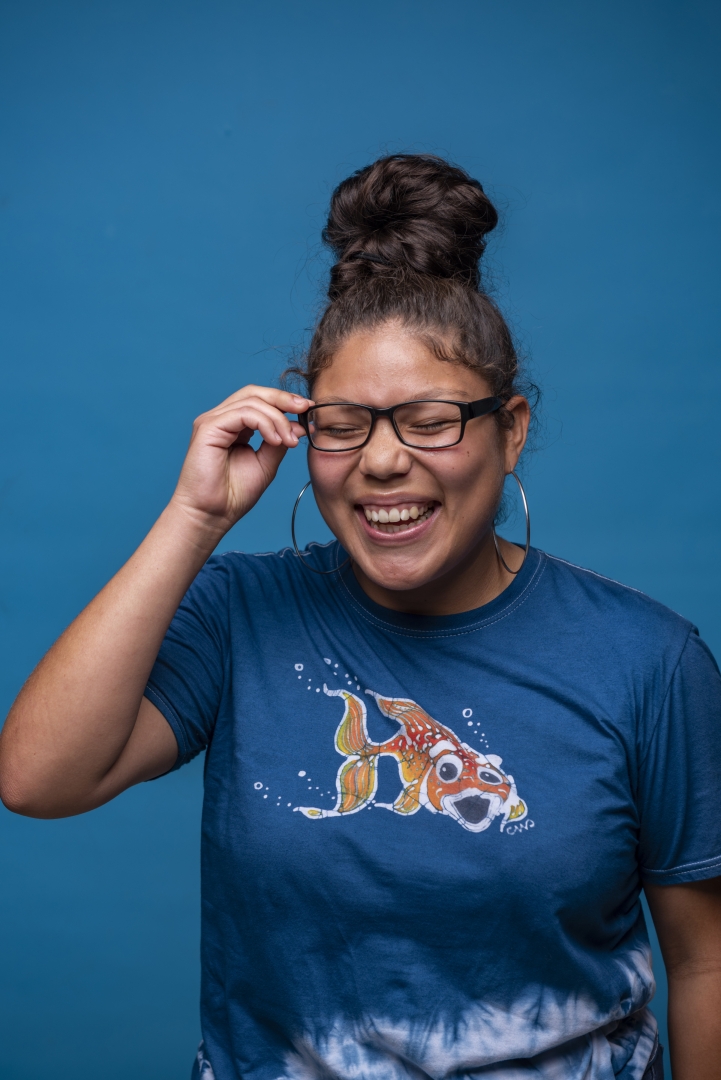
Representing multiple traditionally underrepresented groups, she also thrives in helping welcome students to campus as an assistant in the University’s Office of Diversity and Inclusion. Tray Robinson, the office’s director and someone who is intimately familiar with overcoming shyness as a first-gen student himself, has seen Rodriguez flourish in a leadership role.
“Probably the most rewarding thing about seeing her growth and maturation is how she’s bringing others along with her,” Robinson said. “On top of all her academics, her research, she’s also put herself out there as a resource for other first gens.”
She values the chance to share resources, events, and guidance with students from other cultures trying to find their social bearings.
“I’ve felt alone before, and that’s not a good feeling,” she said. “We don’t want anyone else to feel stuck in solitude here. That’s what learning is all about, to me—if you can help someone with what you’ve learned, it’s essential that you pass it on so they can succeed too.”
Lately, she’s developed a deep focus on conservation research and environmental protection, and thinks that might be a meaningful career path. She’s also considering land management. She’d love to do it overseas, if an opportunity is there. Rodriguez smiled wide as she reflected on what that all means for her family—her parents, her siblings, herself.
“As a family, we all cheer each other on. This feels like a whole family effort,” she said. “It’s not just me being elevated. It helps set up future generations, forever.”
CREATING BEAUTY
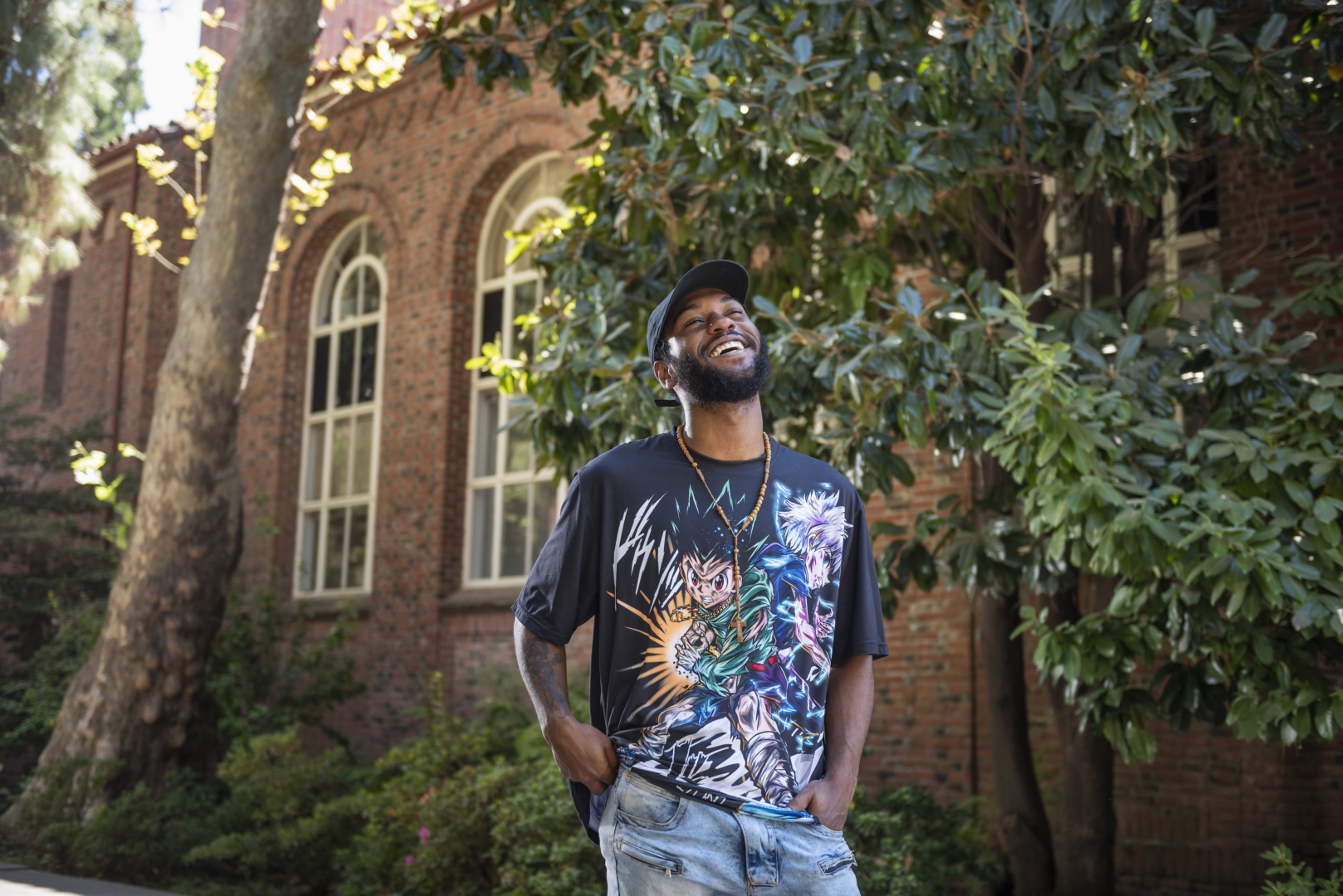
When the power was on, RaTrail Armstead got lost in video games and cartoons. These were his escapes at home, where his single mother sold candy out of the house or hosted dice games in a San Francisco housing project.
When the power was off—often for three or four months at a time, if bills were tight—Armstead hustled to get homework done before the sun set and ran to the store for ice to fill the cooler they used to keep their food fresh. He drew his favorite cartoon characters by candlelight.
Now a senior majoring in studio art, Armstead has succeeded despite a turbulent voyage. His father has no-showed for most of his life, even blocking him on social media to avoid his attempts to connect.
Armstead is used to going it alone by now. His dream, ever since he first connected with cartoons and games, was to design his own characters. In high school, he learned Chico State was the only public university in California with a computer animation and game development program. Thrilled at the possibilities digital art promised, he found upon enrollment that computing played a much larger role than he’d anticipated. He soon needed a coding tutor to pass his upper-division animation classes.
He remembered growing up and not having the electricity to charge a cell phone at home. His classmates grew up with laptops and tablets.
“I wanted to grab a pen and paper and just draw,” Armstead said. “I didn’t grow up with any kind of knowledge about coding. I couldn’t draw with a mouse. I didn’t feel any love for it.”
Three years in, he switched his major to studio art, persevering even as some of his old challenges stuck with him. His bank account, a joint one with his mother that she’d set up when he was a minor, was levied by the IRS for taxes she owed. That financial strain created a yearlong chasm between them, only recently bridged.
With fierce financial struggles, Armstead leaned on student services like the Hungry Wildcat Food Pantry and TRIO. The latter played a pivotal role in helping him manage his day-to-day life so he could focus on his studies, unleashing the creativity that propelled him toward Chico State in the first place.
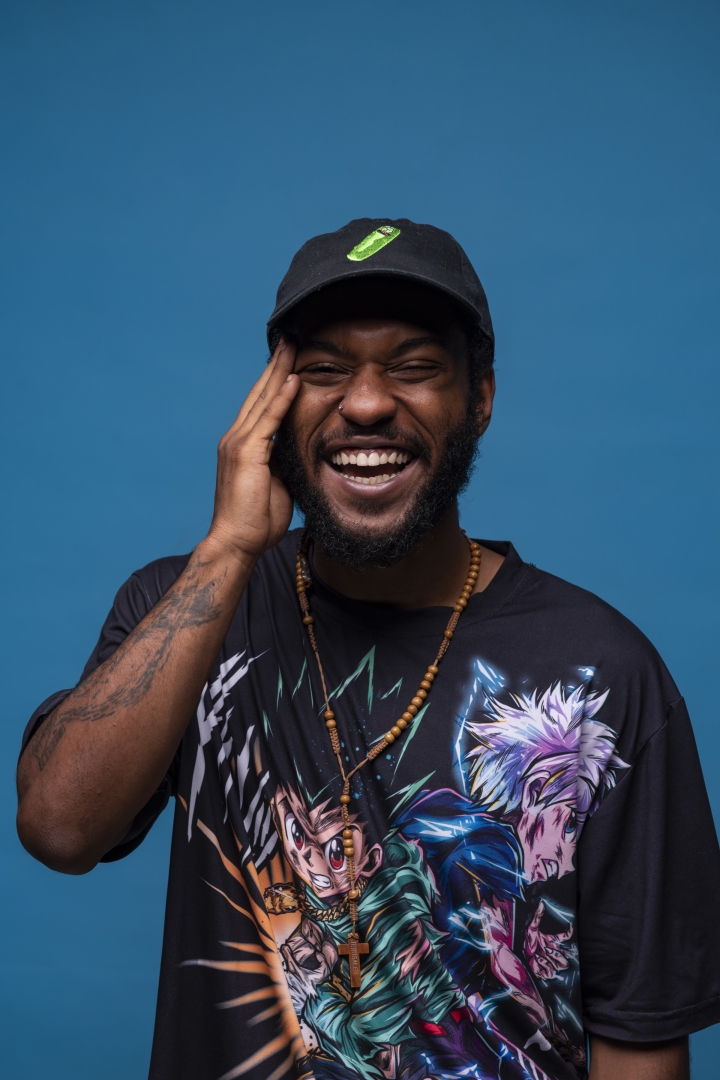
“He’s really determined, and he’s constantly working on his art,” said Alexander, who in her work with TRIO took a special interest in Armstead’s growth and helped mentor him, a common role among first-gen faculty and staff. “If he has a free moment, you’ll see him creating something beautiful, and I think that comes from who he is. He’s got a big heart and he’s very warm, and he wants to share that with other people. He’s got this perfect kind of Chico spirit.”
Armstead has continued to work at his craft to improve and develop a portfolio, and has flourished in his new area of study, even having built an album of hundreds of drawings and digital paintings in his own style. He has begun to consider teaching art, too, as he contemplates careers that would allow him to be creative but also provide stability, which he has sorely lacked for most of his life.
“My mom used to tell me, ‘Do what you love, so you don’t have to work a day in your life,’” Armstead said. “I don’t think my mom got to chase her dreams. But I can still work and chase mine.”
EMPOWER STUDENT SUCCESS
Support University programs that directly provide first-generation students with the skills, mentorship, and community they need to thrive and complete their dream of a degree. Turn your gift into impact at
www.csuchico.edu/transformtomorrow.


